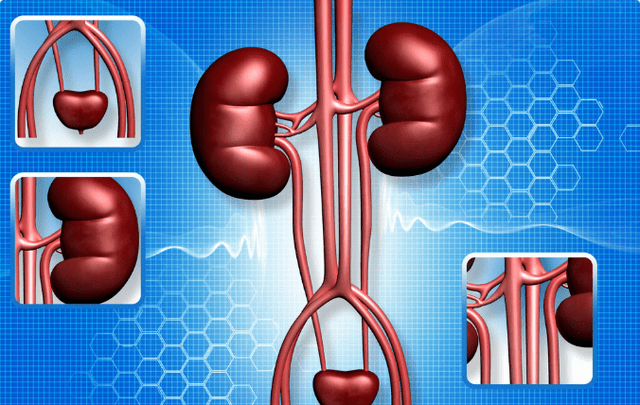The kidney is the foundation of congenital essence and the main source of yang energy in the body. The health and vitality of a person are largely determined by the kidneys, which, in addition to producing urine, also bear the significant responsibility of reproduction and legacy. #Love Wellness Guide#
In the high-pressure state of modern life, men, as the backbone of the family, face immense responsibilities and prolonged exposure to stress from work, family, and society. This can lead to physical decline, manifested as fatigue, late nights working overtime, and excessive strain on the body, damaging vitality and accelerating the depletion of the male kidneys.
For male friends seeking longevity and enhanced hormone secretion, it is essential to care for kidney health and avoid excessive strain on the kidneys in daily life. Kidney overstrain, commonly known as kidney deficiency, can lead to symptoms such as nausea, abdominal pain, diarrhea, back pain, impotence, premature ejaculation, fatigue, lack of concentration, and decreased appetite.
Kidney deficiency can be categorized into two types:
【Kidney Yang Deficiency】
The most common type of kidney deficiency is kidney yang deficiency, presenting symptoms such as general weakness, fatigue, cold limbs, decreased libido, and in women, it may lead to dysmenorrhea, delayed menstruation, and urinary tract infections. In men, kidney yang deficiency is typically associated with lower back and joint pain, diminished sexual performance, impotence, premature ejaculation, osteoporosis, insomnia, night sweats, aversion to cold, and memory decline.
【Kidney Yin Deficiency】
Patients with kidney yin deficiency may experience restlessness, irritability, limb weakness, waist and knee soreness, severe insomnia, tinnitus, and dizziness. Long-term kidney yin deficiency in women can result in reduced menstrual flow or amenorrhea, infertility, and uterine bleeding. In men, it may lead to impotence, premature ejaculation, increased libido, or spermatorrhea.
(1) Eat more Chinese yam
Chinese yam, considered a medicinal food in traditional Chinese medicine, has a sweet taste and a neutral nature. Consuming Chinese yam can benefit the spleen, stomach, and kidney, especially for men with kidney overstrain. Regular consumption can enhance kidney function and alleviate symptoms associated with kidney yang deficiency.
(2) Massage the lower back and abdomen
The kidneys are located on both sides of the lower back. Massaging the lower back can help nourish and protect the kidneys. Regular massages of the lower back and abdomen promote blood circulation throughout the body, ensuring adequate nourishment to the kidneys. Traditional Chinese medicine holds that the kidneys and bladder are closely related, so bladder health also contributes to kidney protection.
When massaging, perform 30 clockwise and counterclockwise movements on the lower abdomen to promote better results.
(3) Acupressure on kidney-related acupoints
[Taixi Acupoint]
The kidneys are considered the foundation of one’s essence. The Taixi acupoint is located on the inner side of the foot, at the depression between the ankle and the Achilles tendon. Regular acupressure on Taixi can help protect the kidneys and has a tonifying effect on the kidney qi. A 5-minute massage is sufficient.
[Shenshu Acupoint]
The Shenshu acupoint is located 1.5 inches beside the lumbar vertebrae. Regular acupressure at this point can alleviate back pain, renal issues, and boost energy levels.
Consistent stimulation of the Shenshu acupoint increases blood flow to the kidneys, enhances kidney function, promotes blood circulation in the kidney area, and aids in toxin elimination, effectively preventing uremia.
When massaging the Shenshu acupoint, 10-15 minutes daily with gentle motions are recommended.
[Yongquan Acupoint]
Located in the middle third of the sole of the foot, stimulating the Yongquan acupoint can invigorate kidney qi, promote the circulation of kidney meridians, harmonize kidney qi and blood, enhance sleep quality, relieve backache, and enhance overall kidney health.
Massaging the Yongquan acupoint with hot water foot soaks before bedtime, rubbing 100-150 times until the sole of the foot feels warm, can effectively improve sleep quality, prolong deep sleep duration, and alleviate back pain symptoms.
(4) Eliminate the habit of holding urine
Many men have the unhealthy habit of holding urine for prolonged periods, which can severely harm the body. Chronic urine retention can lead to urinary and kidney inflammations, impacting health negatively.
Studies reveal that over 30% of kidney failure patients have a history of holding urine for extended periods. To safeguard health, it’s imperative to break this harmful habit promptly.
1. Foamy urine during urination
The kidneys are vital for urine production, and their health significantly influences the urinary function. If urine appears foamy and retains bubbles even after a while, it may signal kidney issues. When the kidneys are compromised, urinary metabolism is affected, leading to toxin accumulation, increased protein content, and proteinuria, resulting in foamy urine. Foamy urine is often indicative of kidney disease and should be treated with caution.
2. Limb swelling
As the organs responsible for urine excretion, damaged kidneys can retain urine in the body, causing edema in the limbs. If you wake up with swollen fingers, toes, noticeable lower leg edema, and skin that takes longer to recover after pressing, it suggests kidney damage. Early kidney health maintenance is crucial.
3. Severe hair loss
With age, male scalp hair follicles decrease, leading to thinning and slower hair growth. According to traditional Chinese medicine, kidney health directly affects hair health. If the kidneys weaken significantly or experience overstrain, they may fail in supplying nutrients to the scalp, resulting in reduced hair growth, dryness, brittleness, and severe shedding.
If you’re experiencing excessive hair loss, increased graying, or brittle, dry hair, particularly within a brief period, it’s essential to consider kidney health issues. Prompt medical examination can prevent delays in optimal treatment.


